
Weekly Tip - Compost Your Food Waste
Do you compost your food waste at home using a council-provided bin and bags or do you throw your food waste in the general bin?
Food waste is a major issue for the planet, not just in terms of generating more rubbish, but also in terms of the impact of farming, manufacturing, packaging, and delivery.
Today we look at the impact of food waste and suggest some ways that you can be more sustainable.
On top of this, you will find information about some home solutions that are far better for composting than council-provided bins.
The solutions can even save you money as councils are now charging for biodegradable bags.

The History of Composting and Food Waste
Did you know that ancient humans produced very little waste as everything they used was natural?
But as communities became cities, ancient populations had to find ways to deal with the growing amount of waste they generated.
The first use of compost was recorded in Neolithic Scotland where people noticed that plants grew better around animal waste.
Later, composting was recorded in written word on clay tablets from around 2300 BC that were attributed to the Akkadians.
The old testament talks about laying dung to enrich the soil.
Even Cleopatra is known to be interested in composting and making crops better.
The use of compost both in terms of animal waste and spoiled food was brought to Europe by the Arab peoples that conquered Spain.
The people of the Amazon also found a way to turn acidic soil into food-bearing soil using waste as a fertilizer.
This soil was called ‘black soil’.

So, you can see composting has a long and varied history and it remains as important today as it ever did.
The Environmental Impact of Not Composting Your Food Waste
Food waste that is not composted ends up in landfills. Unfortunately, landfills are the largest source of human-made methane emissions, a potent greenhouse gas.
Methane is much more harmful than CO2 and takes longer to degrade, contributing to more frequent and severe natural weather disturbances.
Food waste also takes up valuable space in landfills. This leads to the need for more landfills to be created, which has additional negative environmental impacts.
As food waste decomposes in landfills, it produces leachate, a liquid that can contaminate groundwater and surface water. This can harm aquatic ecosystems and lead to water shortages in dry areas.
On the other hand, soil that is mixed with compost retains much more water than none composted soil. This is because it is healthier, can produce more root systems and creates a better ‘natural balance’
We should also talk about the waste that comes from not consuming the food you buy.
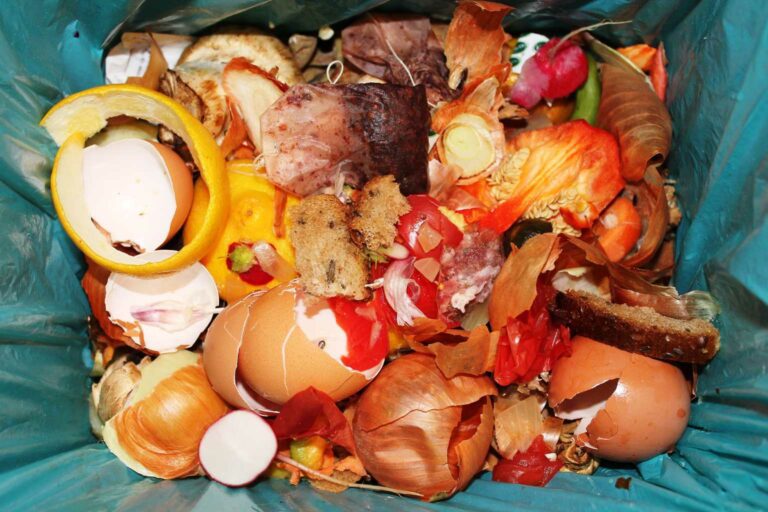
Every bit of food has to be farmed, packaged, distributed and generally cooked and in the UK alone, 9.5 million tonnes of food waste is produced each year.
This all comes with an impact on the planet and if you don’t consume the food, all of that negative impact is for nothing.
How To Be Sustainable When It Comes to Food Waste
Reducing food waste is achievable by practicing mindful consumption. Meal planning helps prevent overbuying. Also, leftovers can be repurposed for another meal. Furthermore, proper storage and preservation techniques helps extend the shelf life of food.
For example, did you know that storing strawberries in an airtight jar in the fridge can double their shelf life. Portion control and mindful eating can also reduce plate waste.
Shopping at local farmers’ markets reduces food transportation and packaging waste. Learning how to properly cook and use the entire food can also help. All of this will help you to reduce food waste and save you money. But, if you do have food waste, then home composting is a perfect solution.
Composting creates nutrient-rich soil that can improve plant growth and reduce the need for chemical fertilizers. Doing this at home is easy and can be carried out with a small space.
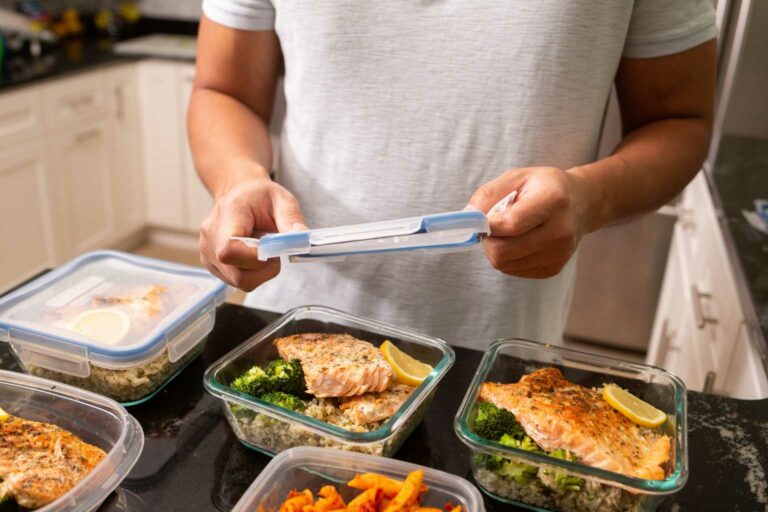
It’s an effective way for people to reduce their environmental impact and contribute to a healthier planet.
By composting food waste, individuals can help reduce greenhouse gas emissions, reduce waste sent to landfills, and create a valuable resource for plants and gardens.
Some of our Favourite Home Food Waste Composting Solutions
Garantia Eco King
The Garantia Eco King compost bin is a 600 litre outdoor composting solution that is perfect for your garden.
Food waste is placed straight into the bin using an easy access hatch and the bin is made from 100% recycled plastic.
The bin can be used all year round and is perfect for a beginner.
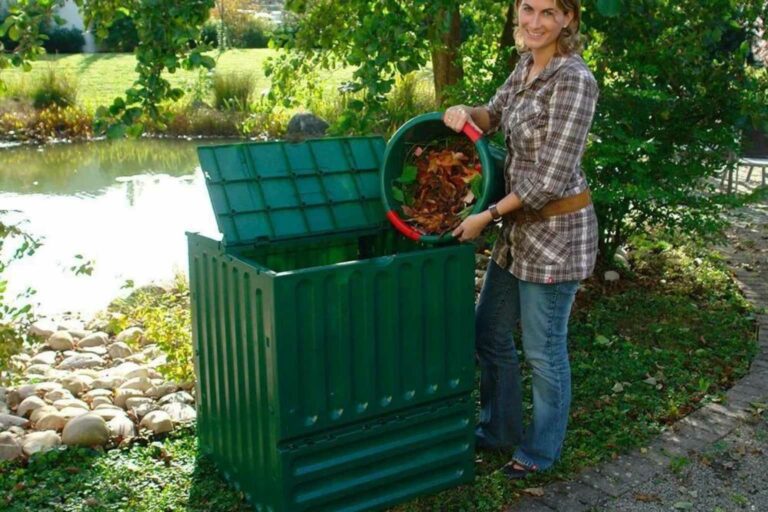
Rowlinson Beehive Composter
Another outdoor composter is the Rowlinson Beehive Composter which is styled to look like a beehive and can double as a planter!
The home composter is manufactured from sustainable sources.
The FSC Certified Softwood is finished with pressure treatment to ensure durable protection against wood rot and weathering.
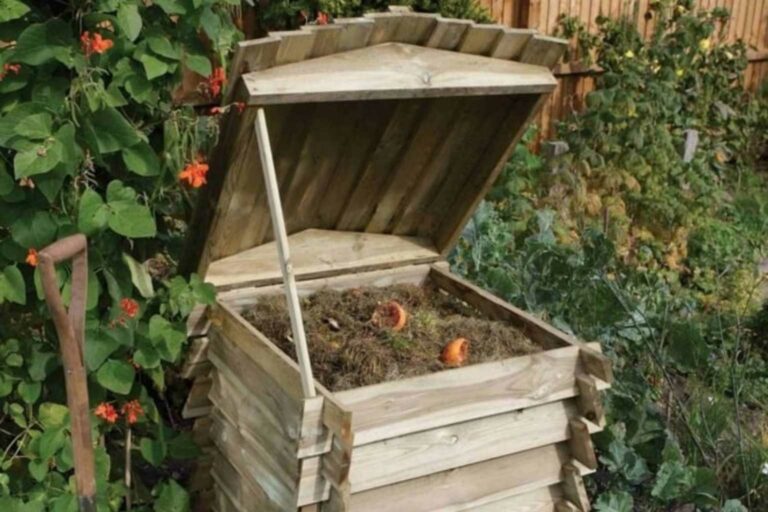
Blackwall Bokashi Bin
The Blackwall Bokashi Bin is an innovative way to store and ferment your kitchen food waste.
You can add in any meat, fish, dairy products and any other organic material for composting.
It will ferment thanks to the specially formulated accompanying Bokashi Bran.
The process is smell free and also produces a liquid fertiliser perfect to nourish your plants.
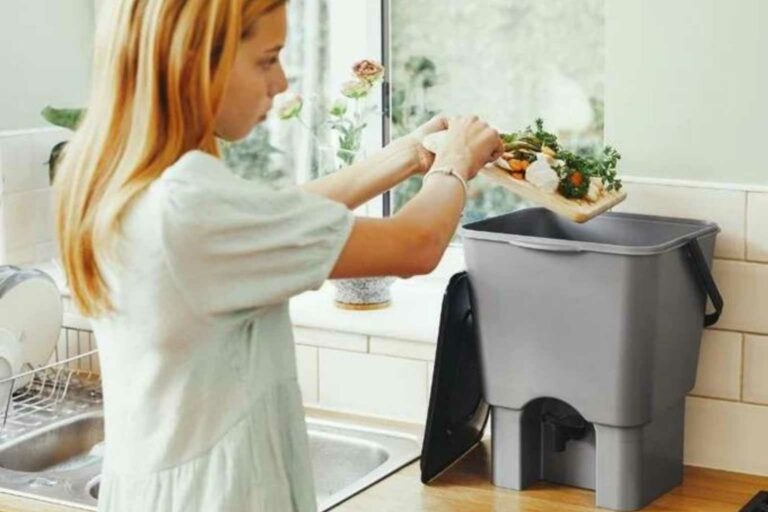
To help you compost your food waste sustainably, our friends at Even Greener have given our readers 10% off.
Simply head over to their site and use PLAYITGREEN10 at checkout to take advantage of the discount on the Bokashi Bin!
Compost Your Food Waste – That’s a Wrap
That’s everything for this week. Food waste is an issue, but it’s something that we can all play our part in reducing.
On top of that, composting is a great way to deal with any food waste and improve the quality of your soil.
We hope you learned something new and if you decide to home compost, enjoy the journey!
Play It Green
Play It Green is a unique subscription service that helps people and businesses to take a journey of sustainability.
Through our 3-step solution, we support footprint reduction, repairing the planet (through reforestation) and increasing social impact by regiving 10% of turnover to charity.
That’s a lot of positive impact for £5 per person per month and more value than a coffee and a piece of cake!
You can use the button below to join the community!






